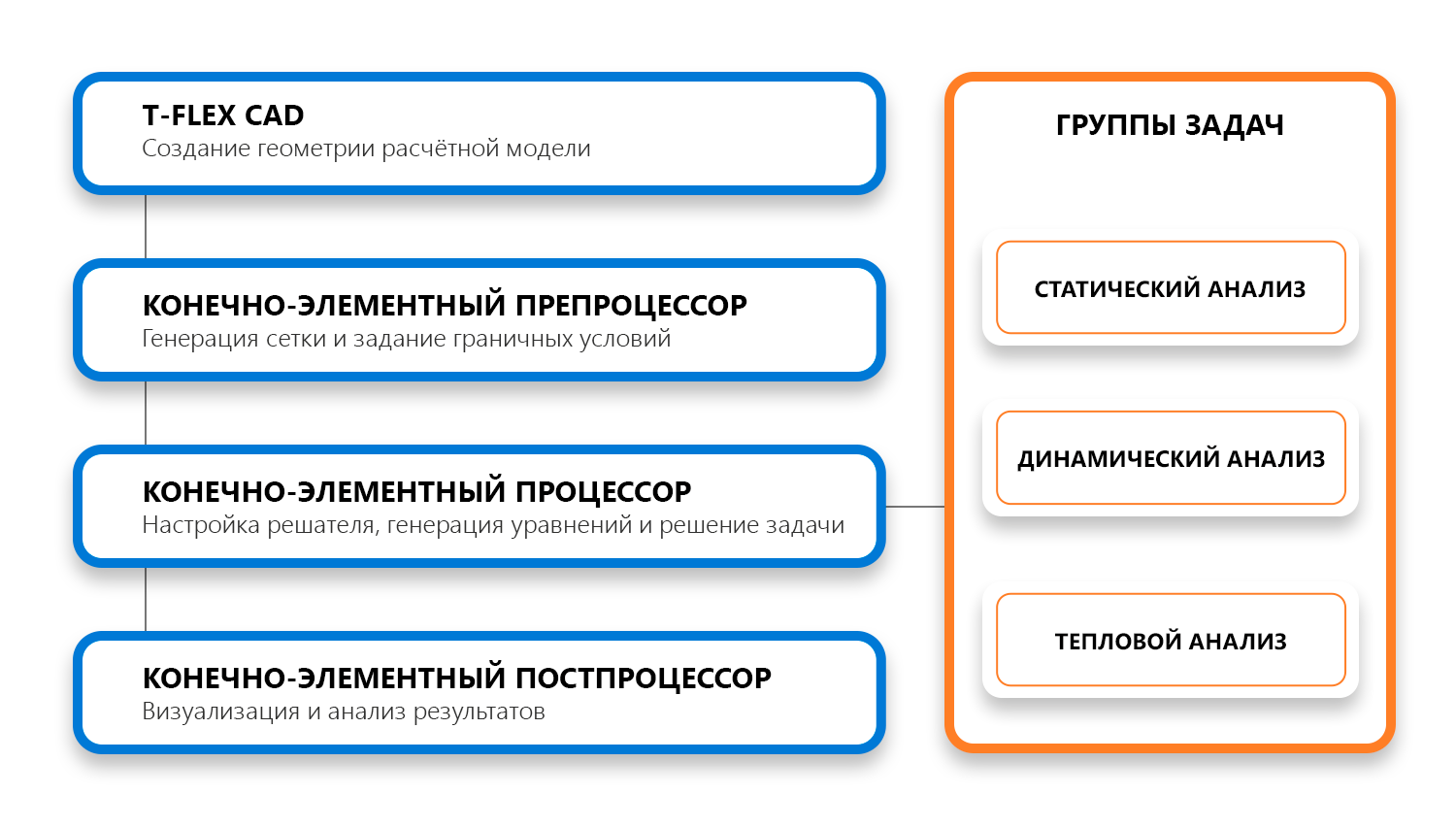T-FLEX Analysis is a finite element analysis environment integrated with T-FLEX CAD for math modeling and testing of common physical processes in complex parts and assemblies.

Key features:
T-FLEX Analysis consists of several specialized modules that make it possible to perform various types of calculations:
- Statistical analysis:
- Analysis of the stress-strain state of structures under the action of constant-in-time loads applied to the system;
- Stability analysis (makes it possible to evaluate the margin of safety and stability of structures according to the critical load);
- Fatigue strength analysis (makes it possible to evaluate the strength of a material under the action of variable loads).
- Dynamic analysis:
- Analysis of the natural frequencies of the structure and the corresponding mode shapes;
- Analysis of forced modes (makes it possible to obtain the dependence of the system response on the frequency of forcing actions—force and/or kinematic, changing according to the harmonic law with (or without) system damping);
- Analysis of dynamic processes (makes it possible to calculate the stress-strain state of a mechanical system under the action of time-varying force and kinematic loads).
- Thermal analysis:
- Analysis of thermal steady processes;
- Analysis of thermal unsteady processes.
Key benefits:
- Automating iterative process of finding the optimal solution;
- Shortening product development time, reducing test costs, improving product reliability and quality;
- Full integration of T-FLEX Analysis into T-FLEX CAD (elimination of geometry transfer issues for analysis and acceleration of analysis model preparation);
- High-quality and convenient tools for analyzing the results obtained: built-in animation module makes it possible to reproduce the calculated behavior of the model under study.
Branch
Platform